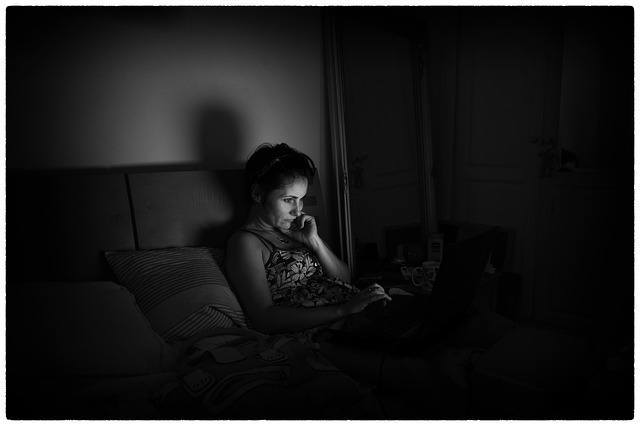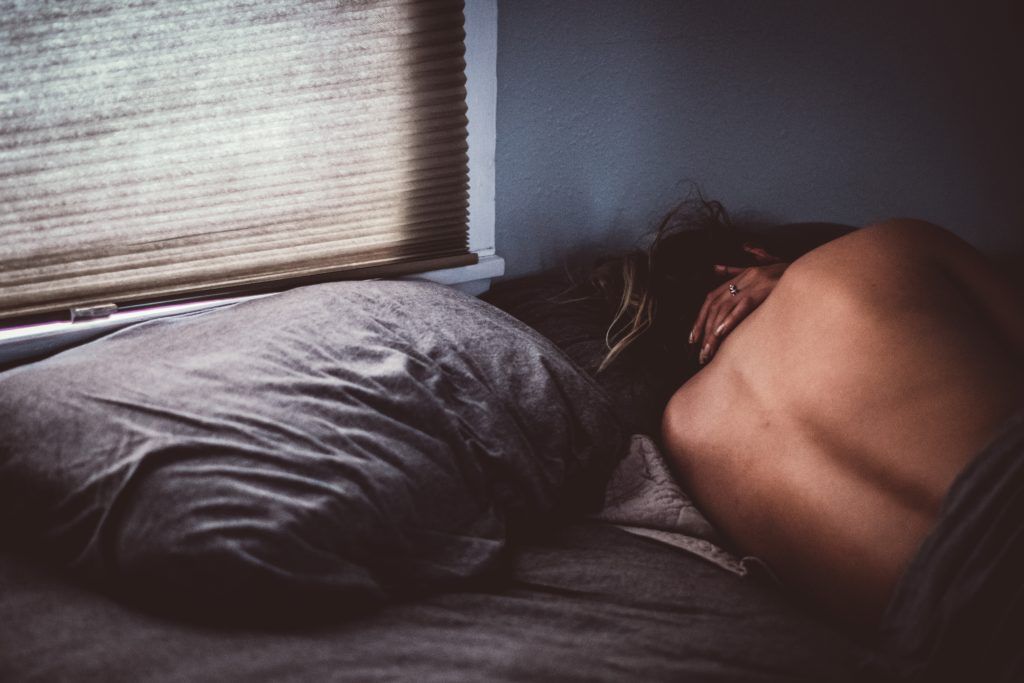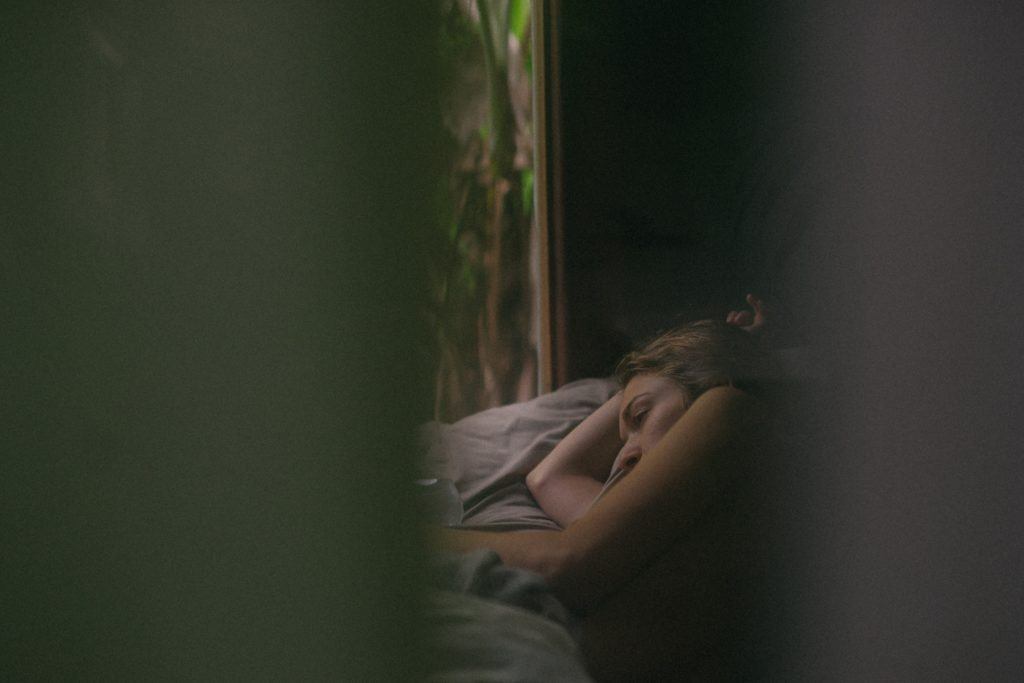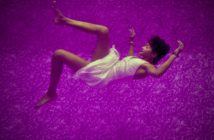Have you noticed that you’ve become more than a little hesitant to enter a dark room, hall, or other areas of your house – even if you know absolutely nothing lurks within?
This is only a natural fear. Our wild imaginations can produce shifting shadows, or attribute bumps into the night to something nefarious lurking in the darkness beyond – just waiting to get us.
This notion is especially prevalent when you’re a child, or after watching a horror movie late at night.
However, if you find that this fear of the night persists long after you should’ve grown past it, it may be a sign that you suffer from a phobia of the dark.
Contents
What is a Phobia of the Dark?
In simple terms, fear becomes a phobia when the terror you experience because of it is so extreme that it detrimentally affects your life.
Your phobia could make you afraid to perform certain tasks or become overly anxious when visiting certain places. A phobia of the dark is no different.
Your ‘scared of the dark’ phobia may cause you to have an irrational fear of the night, which may lead you to purposefully avoid outings with friends or loved ones after the sun drops, or to even sleep with all your lights on at night.
These extremely avoidant and otherwise irrational behaviors will only continue to grow worse if you refuse to seek treatment.
There are several ‘fear of the dark’ names out there, all of which basically mean the same. Nyctophobia, which directly translates to “fear of the night” is the most well-known title for a phobia of the dark.
Other names for an ‘afraid of the dark’ phobia include achluophobia, scotophobia, and lygophobia, all of which translates to “the fear of darkness” in some form.
For simplicity, we will be referring to a ‘fear of the dark’ phobia as nyctophobia.
Symptoms of Phobia of the Dark
The symptoms of nyctophobia are very similar to how everyone else experiences their own phobias.
Specifically, you will feel such extreme distress or discomfort while in the dark or even from the mere thought of being in a dark place – to the point where this fear will adversely affect your daily routine.
Those who suffer from nyctophobia will exhibit both physical and emotional symptoms.
Physical Symptoms
The physical symptoms of nyctophobia are quite similar to the symptoms of people experiencing a panic attack. Indeed, facing or even thinking about your phobia may induce a panic attack in you.
You may have difficulty breathing, an increased heart rate, feel that your chest is tight or in pain, shake, tremble, or feel tingling sensations all over your body, feel lightheaded and/or dizzy, have an upset stomach, have sudden hot or cold flashes, or sweat profusely.
Those who suffer from nyctophobia may also be prone to bouts of insomnia or other sleep disorders. After all, it can be difficult to fall asleep and stay asleep at night if being in darkness stresses you out.
If you find that your nyctophobia has also led to you developing a sleep disorder, then it may be time for you to consult a doctor.
Lack of sleep can lead to decreased functionality in the daytime, memory loss, lack of focus, and even more serious conditions like depression or anxiety.
You may actively avoid going out at night, run away at the sight of a dark room, feel the need to sleep with a night light, or even sleep with all your lights on at night.
Emotional Symptoms
The emotional symptoms of nyctophobia are also similar to when suffering a panic attack.
You may experience overwhelming feelings of anxiety or panic that, in turn, also make you feel as if you are about to die or lose consciousness.
Additionally, you may feel an intense need to escape your phobia, disassociation from your sense of self, a loss of control over your situation, and/or feel powerless over your phobia.
You may even become angry or defensive when someone tries to help you get over your fear, however well-meaning they may be.
What Can Cause a Fear of the Dark?
Many people are aware that their phobias are irrational, and they may even be embarrassed by them, but that does not invalidate their extreme feelings of fear.
In fact, there may very well be both an evolutionary and a psychoanalytic factor to your fear of the dark phobia.
Early humans knew that predators tended to hunt at night, and the thought of being attacked during a time when they were most vulnerable was a very valid fear at the time. In this sense, it was less a fear of the darkness itself than what might lurk within it.
Though we may not have to worry about predators coming after us in our home, the fear of some unknown presence out to get us is one that seems to have persisted across time.
A 2014 psychoanalytic study also found that a fear of the dark phobia may be attributed to separation anxiety from a primary attachment figure, such as a parent or guardian.
Typically, this fear of the night tends to first appear in early childhood. Many, if not all, small children are afraid of what lurks in the dark – due to their inability to distinguish reality from fiction.
It can be difficult for a developing brain to rationalize that a small lump in the corner is a discarded piece of clothing instead of a monster come to bite their toes.
Scary images on television, in movies, or taken from some other form of media they might have caught in the daytime, may kick their imaginations into overdrive during the night. Always be mindful of what kind of media you allow your child to consume, even if they like scarier things.
If you had an anxious and overprotective parent or guardian growing up, then you may also have developed an unhealthy sense of anxiety over a number of different things, including the dark.
On a similar note, your genetics could make you predisposed to developing a phobia of the dark as well.
Any traumatic events that take place in the dark, such as being trapped inside a dark room, undergoing sexual or physical abuse in the dark, or getting into a rough car accident at night, may also cause you to develop a fear of the dark phobia.
Who Suffers from Fear of the Dark Phobia?
Nyctophobia is mostly found in young children. Because children are still developing and learning about the world around them, there is still a great deal they do not understand.
Many people tend to fill in the gaps in their knowledge with their imaginations, and children are no different.
In their minds, the dark can hold an infinite amount of possibilities, and the fact that they cannot see what those possibilities are can be terrifying.
Children as young as two to three years old developed some sense of imagination. They may conjure all sorts of monsters, ghosts, or creatures hiding in the darkness.
As discussed above, it may be wise to limit the kinds of scary things your child sees throughout the day – no matter how much they insist that they can handle it.
Depending on the initial trigger of your nyctophobia, however, this fear can persist throughout your entire life.
While most people tend to grow out of fearing the dark by adolescence, people with nyctophobia will retain this fear well past the age others think it would be acceptable to have it.
However, keep in mind that nyctophobia is actually the fourth most common phobia – after fear of public speaking, death, and spiders.
You may feel comforted to know that you are not alone in your struggle and that it’s rather common. Doctors and therapists are well-equipped to help you overcome it, should you decide to seek help.
This video explains more on fear of the dark phobia.
How to Overcome a Fear of the Dark
It is important to know that your fear of the night is a valid one. You should not be embarrassed to talk to a loved one, a doctor, or a therapist about this.
Doctors and therapists are there to help you overcome your fears – not to make fun of you for having them.
Keep in mind that you should only seek professional help if your nyctophobia is interfering with your ability to sleep or stay asleep at night.
You should also seek professional help if you feel extremely anxious or distressed about being in the dark, you avoid being in the dark as much as possible, or if you experience any of the physical or emotional symptoms listed above for more than six months.
Diagnosis
Your doctor or therapist will ask you questions about your psychiatric and social history to try and determine when you may have developed your nyctophobia.After determining the cause, they will help you figure out which treatment option is best for you.
About 90% of all patients who undergo some form of treatment or therapy for their phobias find themselves conquering their fear. It’s a process which requires dedication, but it isn’t an impossible task.
Treatment Options
Exposure Therapy
Exposure therapy is basically when your doctor or therapist exposes you to your fear, little by little until you find you are no longer afraid of it.
Exposure therapy for nyctophobia may include you visualizing your fear repeatedly during a session, or to stand in progressively darker and darker areas until you can tolerate being in the dark on your own without any symptoms popping up.
This process is known as desensitization. Some people may even get over their fear in as little as one long session.
Be sure to know your limits and alert your doctor or therapist if you believe the level of darkness you are exposed to is too intense.
The idea behind exposure therapy is to help you get over your fear gradually – not send you spiralling into a panic attack. It’s about broadening your comfort zone, rather than shoving you out of it.
Cognitive Therapy
Cognitive therapy helps you recognize what causes your nyctophobia and tries to replace your anxious feelings with more positive ones instead.
Your doctor or therapist may have you visualize things you enjoy in the dark, for instance, or perform nightly rituals that will help provide comfort before you go to sleep in the dark.
In the case of nyctophobia treatment, this therapy may include some level of exposure therapy – to show you that nothing bad will happen to you in the dark.
Typically, therapists will pair this treatment option with others to aid in recovery.
Relaxation and Meditation Techniques
Performing deep breathing exercises or practicing meditation once (or even multiple times) a day can help you stay relaxed and learn how to manage your stress more effectively, even when exposed to your phobia.
The physical symptoms of nyctophobia can worsen the emotional ones (and vice versa), so learning to combat at least one of these can help you overcome your fear.
When performing deep breathing exercises or meditating, you should focus solely on how you are breathing. Consider everything else, even your phobia of the dark, to be an unnecessary distraction; just breathe.
Again, your doctor or therapist may combine these techniques with exposure therapy within the same session, or you can practice deep breathing and meditation all on your own.
Medication
If all else fails, your doctor or psychiatrist may then recommend that you take medication.
Keep in mind that they should only recommend medication as the very last resort. Unlike medication used to aid with anxiety disorders, there is little research regarding medication being effective in treating certain phobias, including nyctophobia.
This video has more phobia of the dark information.
Conclusion
A phobia of the dark can be rather debilitating. Darkness is not something you can easily escape, after all.
Still, once you recognize that your fear of the night is a problem, this phobia, much like any other, is easily treatable if you allow yourself to seek help.
In time, you may find that the dark is not as scary as you previously thought. You will be able to move on to a full and wonderful life.
Are you dealing with a phobia of the dark?










